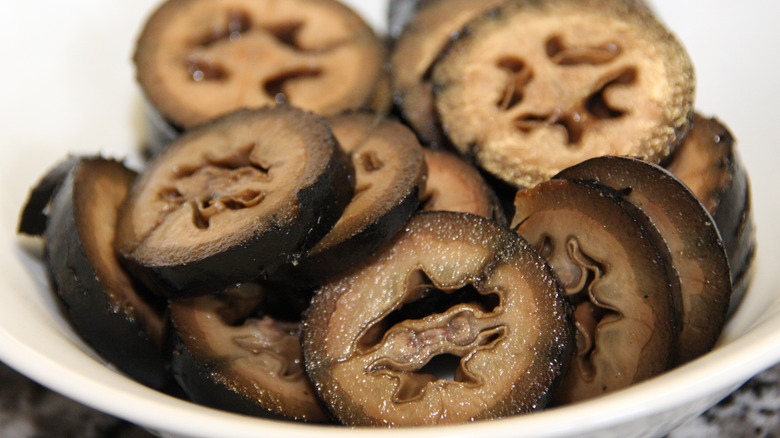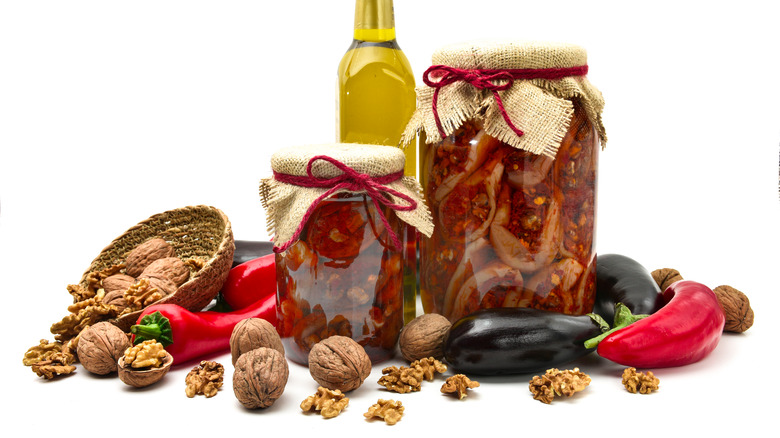The Old School Way People Used To Preserve Walnuts
Before agricultural practices were popularized over 10,000 years ago, humans foraged for nuts and berries, and for some, nuts were a large portion of their daily caloric intake (via National Geographic). In the Mediterranean and Central Asia, walnuts were the nut of choice because they were native to the region, per Healthline. According to California Walnuts, there is evidence of walnuts being used as a natural food source as early as 7000 B.C., and the nut was such an important aspect of Mediterranean cuisine that the Romans called them Juglans regia, "Jupiter's royal acorn," as a tribute to their most powerful god.
Not only do walnuts have an impressive history, but they boast several health benefits. According to Healthline, walnuts are incredibly rich in omega-3 fats and antioxidants, which can "improve brain health and prevent heart disease and cancer." You get the most out of these health benefits when you eat walnuts on their own, but they can easily be incorporated into savory or sweet dishes, like spaghetti squash with sage and walnuts or your favorite sweet and sticky baklava recipe. Walnuts are extremely versatile and can be prepared in many ways, including an old school snack from the U.K., pickled walnuts.
Pickled walnuts are a delicacy in the U.K.
While regular walnuts have a pretty mild flavor, pickled walnuts are spicy and are commonly balanced out with creamy cheese and rich meat, per Furrow. Pickled walnuts became especially popular in the U.K. because their climate is not warm enough for walnuts to fully ripen, so in order to not waste the crop, the green "drupes" are picked from the tree and pickled to make them palatable (via Gabriel Hemery)
Walnut pickling is a rather wild and days-long process. Iowa University Libraries has a vintage pickling recipe from the 1920s which details how the under-developed nuts are soaked in brine for three days, in ice water for 6 hours, soaked again in a boiling mix of vinegar, sugar, and spices, and left to sit for three more days before repeating the last step. Then, the liquid and walnuts are poured into jars to be stored for six weeks.
Because of the terribly long and arduous process of making pickled walnuts at home and how expensive they are to buy in the market (anywhere from $12-$15 for a 12-13oz jar), pickled walnuts are not a common household snack anymore, even though they are still considered an English delicacy, per University of Washington Botanic Gardens.

